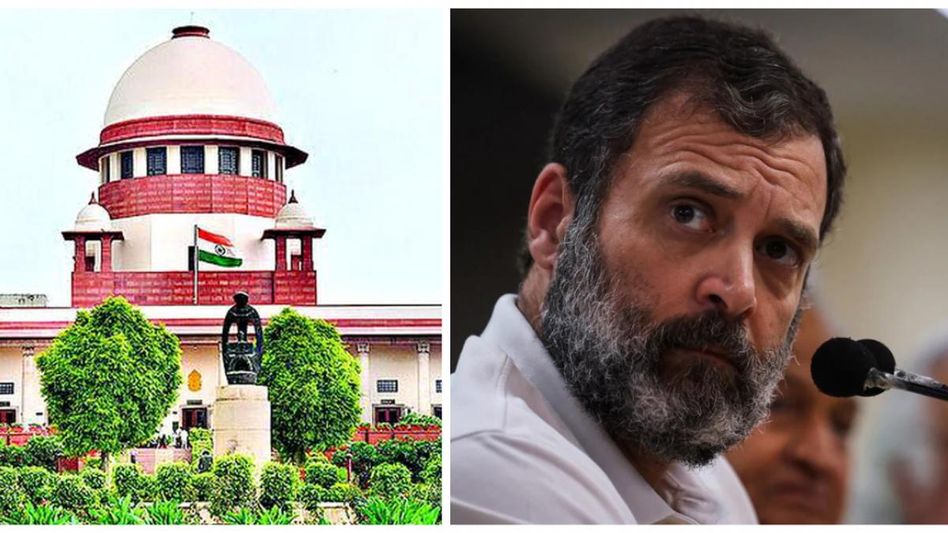Supreme Court stays Rahul Gandhi's conviction in defamation case over 'Modi Surname' remark
The controversy arose when Purnesh Modi, a former minister in the Gujarat government, filed a criminal defamation case against Rahul Gandhi in 2019.
 Supreme Court stays Rahul Gandhi's conviction in defamation case over 'Modi Surname' remark
Supreme Court stays Rahul Gandhi's conviction in defamation case over 'Modi Surname' remarkThe Supreme Court has issued an interim order staying the conviction of Congress leader Rahul Gandhi in the criminal defamation case stemming from his 'Modi surname' remark on August 4. The court's decision comes as a relief to Gandhi and has wide-ranging implications on his political career and the rights of his electorate.
The controversy arose when Purnesh Modi, a former minister in the Gujarat government, filed a criminal defamation case against Rahul Gandhi in 2019. The Congress leader had made the contentious statement during an election rally at Kolar in Karnataka on April 13, 2019, asking, "How come all thieves have Modi as the common surname?"
While accepting Rahul Gandhi's affidavit in the contempt petition, the Supreme Court acknowledged that his utterances were not in good taste. The court also emphasized that individuals in public life should exercise caution when making public speeches, and the Congress leader should have been more careful with his remarks.
Representing Rahul Gandhi, senior advocate Abhishek Manu Singhvi argued that the case filed by Purnesh Modi was peculiar, as no individual named in the speech had filed a lawsuit. Singhvi pointed out the lack of uniformity and identifiability among the 13 crore people with the surname "Modi," and interestingly, only BJP office-holders from that community had initiated legal action.
Senior advocate Mahesh Jethmalani, appearing for Purnesh Modi, contended that the petitioner must have strong grounds for the court to negate the sentence without reassessing the evidence, as the appeal was pending before the sessions court.
During the proceedings, Justice BR Gavai raised a crucial question regarding the impact of Rahul Gandhi's conviction on the Wayanad constituency, which is currently unrepresented in parliament due to the conviction. Justice Gavai emphasized that the trial judge must explain the rationale behind imposing the maximum sentence, as it affects not only the rights of one individual but the entire electorate of a constituency.
In an affidavit filed before the Supreme Court, Rahul Gandhi reiterated his stance, refusing to apologize for the Modi surname remark. He asserted his innocence and urged the court to stay the conviction, denouncing the use of the criminal process to force him into apologizing for an offense he claims he did not commit.
Copyright©2025 Living Media India Limited. For reprint rights: Syndications Today









